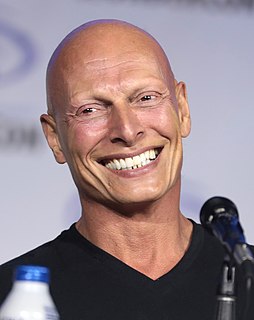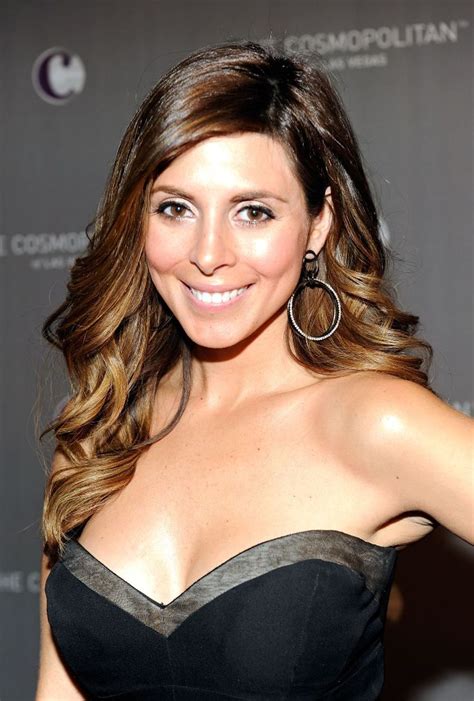A Quote by Debra Winger
Theater is all about the rehearsal process. In fact, I think a lot of times opening night there's a mixed sadness because you're finished with a lot of people's favorite part of the process, which is finding the character and discovering it, and then you get to live it.
Related Quotes
My favorite part about working in theater is the rehearsal process. I absolutely love the rehearsal process. Working out the characters, figuring the character out, and the relationships between the different characters. I love all of that, which, unfortunately in film, you get very little opportunity to have.
I think casting is really important. Finding the right sensibility for the right part is an art in itself. If you're off there, you make it harder on yourself as a director. And it's fun to work that out with the actors. I don't think there's any magic to directing actors. It's very instinctual. Working with actors is really one of my favorite creative moments of the whole process, and the most fun, because it's collaborative. I spend a lot of time rehearsing. I'm very rehearsal-oriented, probably because I have some background in theater. I like knowing what will work beforehand.
A movie is a filmed rehearsal in a way. The audience doesn't know that because you're taking out the things that don't work. There's no comparison to the theater because it's live. But making a movie is just as challenging and exciting, I find. A movie is pure process. The theater is the result of process.
In terms of how the music developed, it was my normal process, which I would say is really a hybrid process of sketching on bits of paper, playing the piano, playing synthesisers, using the computer, staring out of the window, finding things I'd forgotten about, happy accidents, failed plans, best intentions, equipment failures. It is a multidimensional process incorporating a lot of planning and intention and a lot of randomness. Ultimately I just follow the material where it wants to go a lot of the time.
The first thing that happens is the cleansing of the former character. I don't think a lot of actors talk about it, but there is usually a process where you essentially purge yourself of the character played prior to the movie. Then you want to think about what the character represents, and you write down all of the elements about this character and then take the time to find some synchronicity and start breathing the character.
I think grief is a huge subject; it's one of the things that everybody is going to confront in one way or another. There's been a lot of books written about how Americans have an odd way of trying to defer grief or minimize the need to grieve. People used to have a lot more ritual grief in their lives. For the most part, we think of it as a strictly temporal process: you grieve for a time and then you're over [it], but it's also a spatial process. It travels across a map.
Culturally, now, we're really tight around death, and as a result I think people miss out on a lot of the beautiful aspects of the end of life process that can be very helpful for the grieving process, that can be a really beautiful part of transition of life that we don't get to experience because it's not in the conversation.
If I think back to every rehearsal process for every play I've ever worked on, there's just so much crying at home. I barely sleep. There are moments of deep despair and anxiety, and then there are moments in rehearsal that are the most exhilarating; feeling seen and seeing everybody. Feeling like you have a purpose on the planet. A huge part of the process I enjoy is watching the actors figuring out what they can handle and what they can take and what they need from the director and me.
Well, it's not all the same, but there are a lot of parallels. I'm not sure how to answer [on psychology background], but I think when I was studying psychology I had a professor and a friend who would talk about "process" all the time. Your process, his process, the group's process. There's some carryover from that discussion to my creative work.
I like dreams. I think there's a lot of information in them. I spent a lot of time on Jungian analysis and dreams are an elemental part of that process. Carl Jung believed very much in the power archetypes in dreams, what dream imagery means, and how you can tie it into deeper self examination. It's a big part of the therapeutic process.
I think for a lot of people, the financial barrier is the biggest leap you have to take to follow your dreams. A lot of people don't want to stick their necks out and take that risk, which is totally understandable - I think for a lot of people it doesn't happen because it's not a necessity. Unless it's a necessity to do this, it can be a pretty scary process.




































